France maintains ban on mass gatherings until end of October
From CNN’s Benjamin Berteau and Barbara Wojazer in Paris
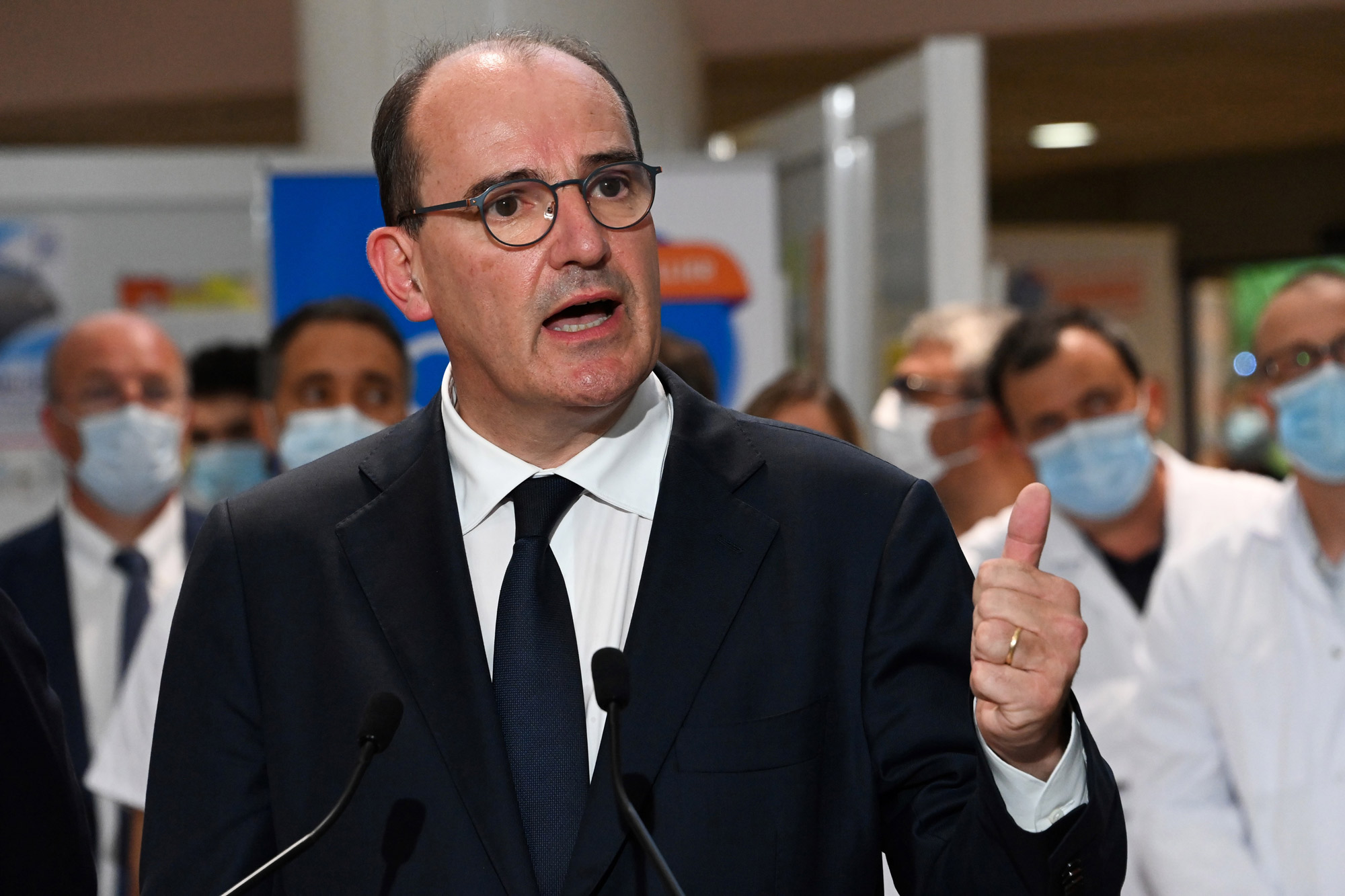 French Prime Minister Jean Castex delivers a speech during a visit at the CHU hospital in Montpellier, France, on August 11. Pascal Guyot/AFP/Getty Images
French Prime Minister Jean Castex delivers a speech during a visit at the CHU hospital in Montpellier, France, on August 11. Pascal Guyot/AFP/Getty ImagesThe French government is extending a ban on mass gatherings of 5,000 people or more until Oct. 30, Prime Minister Jean Castex said Tuesday.
Local authorities can request an exemption to the ban, Castex explained while speaking after a visit to a hospital in the city of Montpellier.
This decision comes as “the coronavirus epidemic has deteriorated over the last few days,” Castex warned.
“For the past two weeks, the epidemiological situation has been trending in the wrong direction,” he added.
Deploring a “weaker vigilance, weaker discipline and weaker solidarity” from a part of the population, the prime minister also called to extend the obligation to wear masks in outdoor public spaces.
The decision on mass gatherings reverses a previous decision announced on Aug. 4 from the Culture Ministry, which said that cultural events in France of 5,000 people or more would be able to resume from Sept. 1.
New York City's key Covid-19 indicators remain below the threshold
From CNN's Elizabeth Hartfield
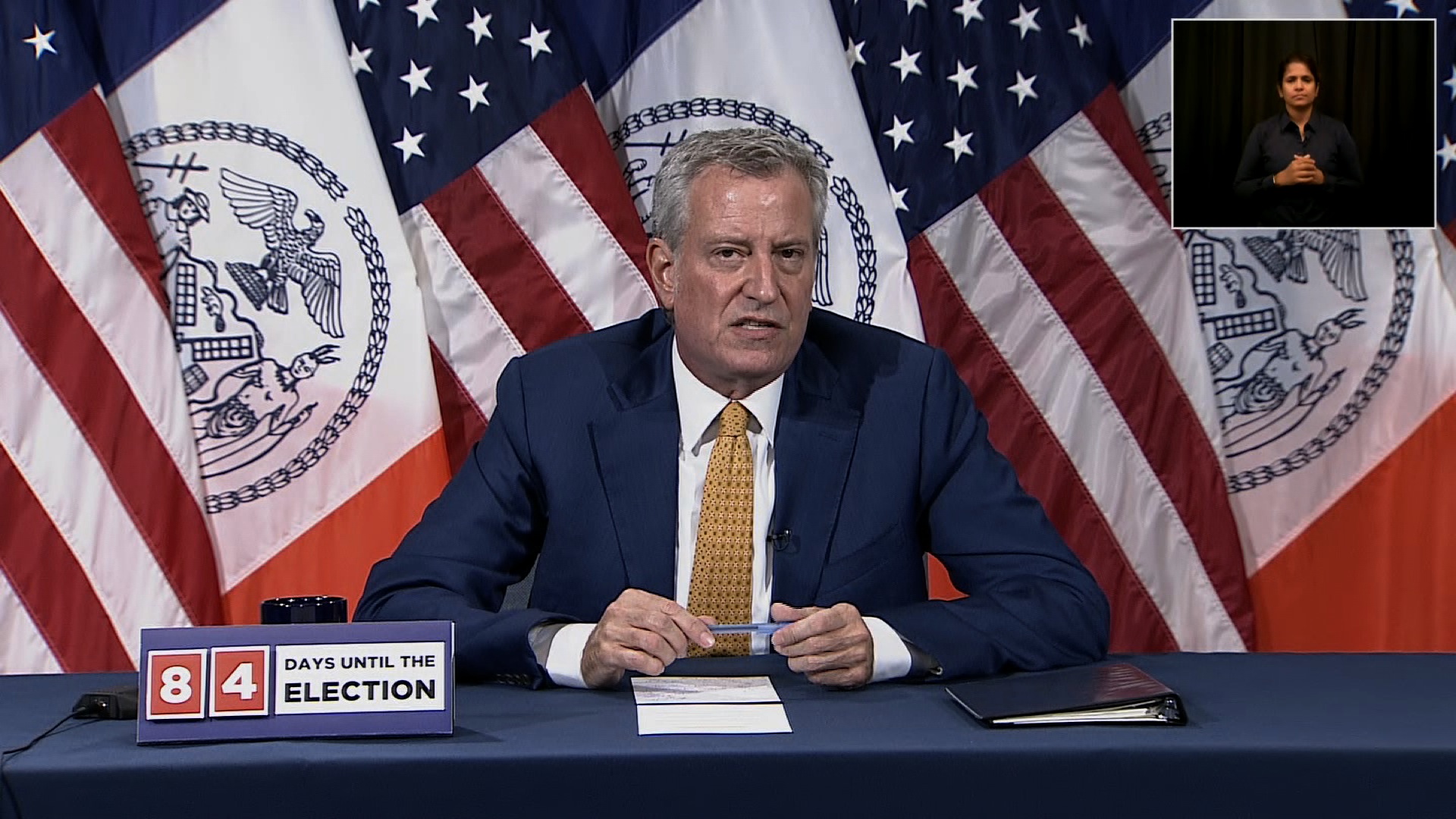 New York City Mayor Bill de Blasio speaks during a press conference in New York City on August 11. NYC Media
New York City Mayor Bill de Blasio speaks during a press conference in New York City on August 11. NYC MediaNew York City’s coronavirus indicators continue to remain steady, Mayor Bill de Blasio said on Tuesday.
At least 61 individuals were admitted to hospitals on Monday, 297 individuals remain in intensive care united in the New York City health and hospital system, and the daily positivity rate in the city remains at 2%.
All three of those indicators are below the threshold.
Mayor de Blasio spent much of Tuesday’s news conference focused on new measures aimed at helping the cities economic recovery.
The city is launching a tenant protection portal that will help protect renters who can’t afford their monthly payments from being evicted.
Additionally, 30 of the largest employers in the New York City area are joining to create the New York jobs counsel — a group of CEO’s who have taken a pledge to join together to create 100,000 jobs for low income New Yorkers.
Mexico will start phase 3 trials of vaccines from US and Chinese companies
From Karol Suarez in Mexico City
Mexico has agreements with two Chinese companies and one American company for vaccine trials, Mexican Foreign Minister Marcelo Ebrard said during Tuesday morning’s news conference.
Mexico will be participating in trials of vaccines being developed by Janssen Pharmaceuticals (owned by Johnson & Johnson) and Chinese companies Cansino Biologics Inc and Walvax Biotechnology Co Ltd, bringing the number of vaccine trials in the country to four.
In July, Ebrard announced Mexico will participate in phase three of a Covid-19 vaccine trial from the French pharmaceutical company Sanofi-Pasteur's Mexico branch.
What we know so far about Russia's vaccine
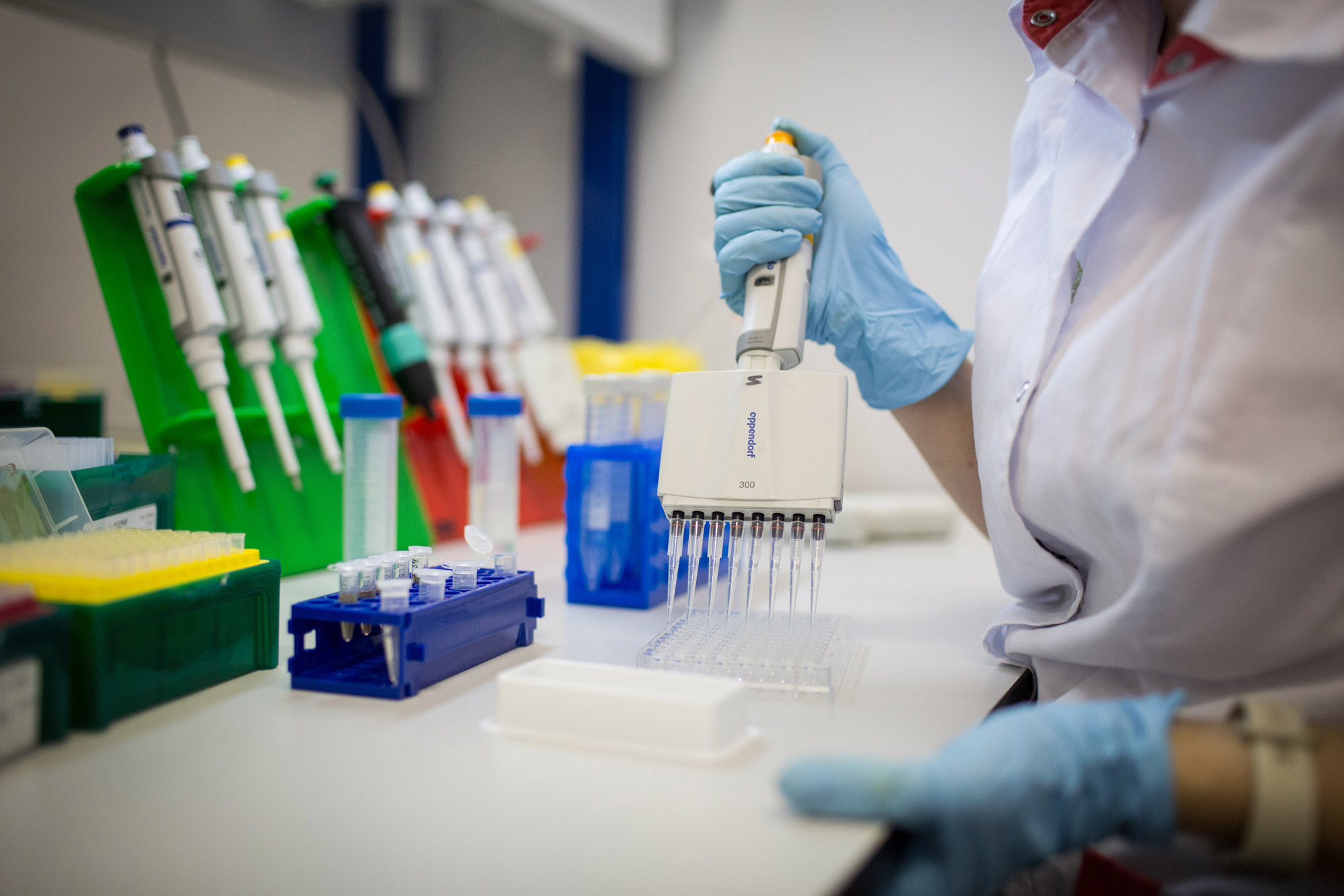 A lab technician works on production of the 'Medgamal' Covid-19 vaccine, developed by the Gamaleya National Research Center for Epidemiology on August 6 in Moscow, Russia. Andrey Rudakov/Bloomberg/Getty Images
A lab technician works on production of the 'Medgamal' Covid-19 vaccine, developed by the Gamaleya National Research Center for Epidemiology on August 6 in Moscow, Russia. Andrey Rudakov/Bloomberg/Getty ImagesRussian President Vladimir Putin announced the approval of a coronavirus vaccine, claiming it as a "world first" — but there is continued concern and unanswered questions over its safety and effectiveness.
If you're just reading in, here's what you need to know about the vaccine:
Watch Putin's announcement:
Celebrity chef says politicians need to act now to save restaurants
From CNN's Adrienne Vogt
Award-winning chef and restaurateur Marcus Samuelsson, head chef of Red Rooster in Harlem, said that Congress needs to pass a $120 billion grant to keep restaurants in business during the coronavirus pandemic.
Despite bipartisan support, the Restaurants Act has not been taken up by Senate Majority Leader Mitch McConnell.
“Are we going to not have those favorite restaurants in our neighborhoods? Those are like the heart and soul of the neighborhoods, and really we need Congress to pass this $120 million bill,” Samuelsson said on CNN’s “New Day.”
The chef commended volunteers and community members for banding together to help restaurants, but he said that now it is time for political leaders and President Trump to act.
As the pandemic has affected Americans’ jobs and the ability to feed their families, Samuelsson partnered with Newark Working Kitchens to deliver more than 200,000 meals since March.
Samuelsson said it’s a model that can be implemented across the country. The meal delivery service works with the New Jersey city's government, restaurants and donors to get food out to residents and first responders, hire back workers and order food from farmers, he said.
Watch more:
Community spread driving big spike in new Covid-19 cases in US nursing homes, health group says
From CNN Health’s Andrea Kane
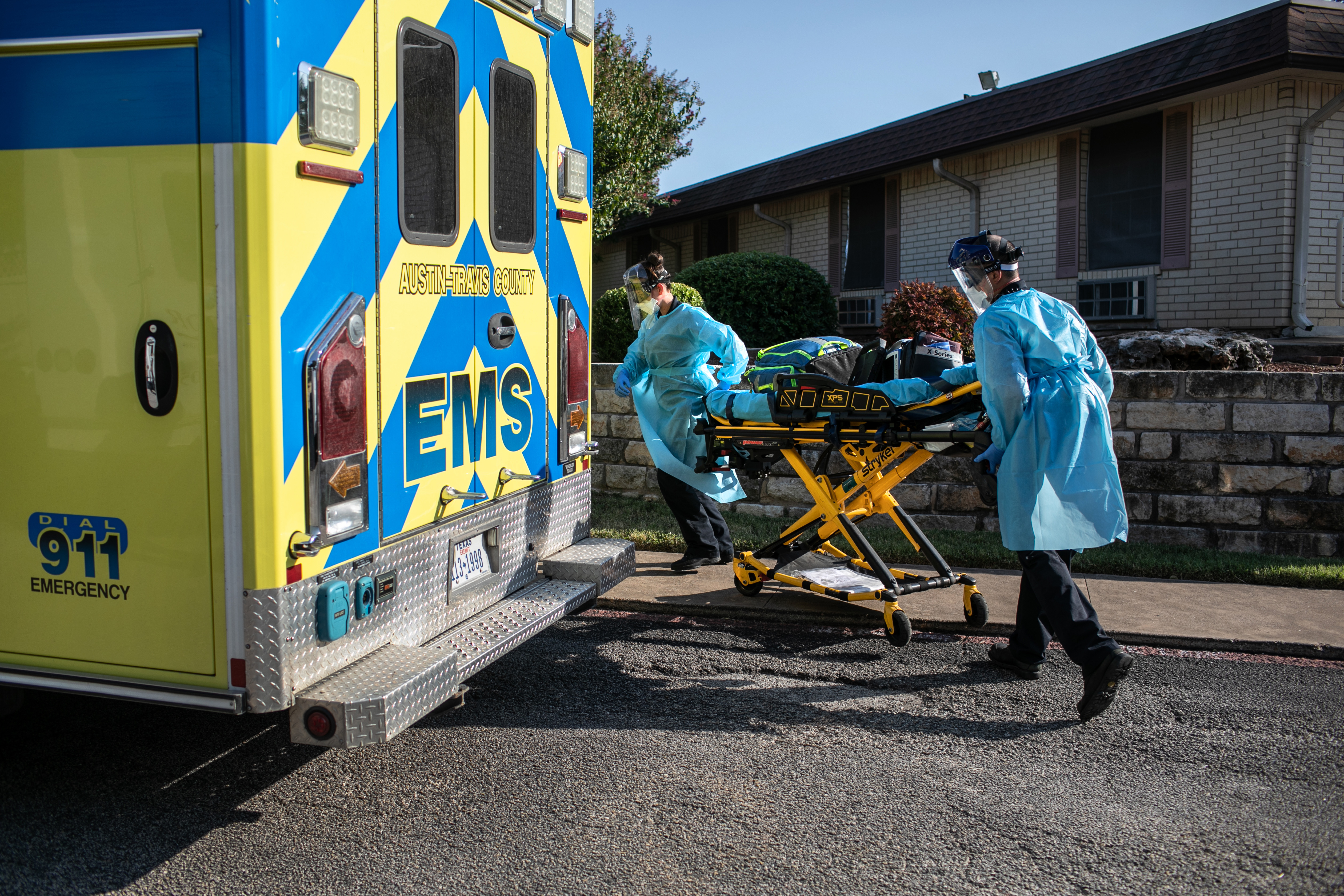 Austin-Travis County medics prepare to enter a nursing home on August 5 in Austin, Texas. John Moore/Getty Images
Austin-Travis County medics prepare to enter a nursing home on August 5 in Austin, Texas. John Moore/Getty ImagesThe American Health Care Association and National Center for Assisted Living (AHCA/NCAL) published a report Tuesday showing that confirmed Covid-19 cases in US nursing homes are rising rapidly again after a steady decline in June, due to a jump in cases in the general population.
The report's findings: The report used data from the Centers for Medicare & Medicaid Services (CMS), which in conjunction with the US Centers for Disease Control and Prevention compiles weekly statistics from nursing homes.
Those numbers show that Covid-19 cases in nursing homes rose to 8,628 for the week of July 19, from a low of 5,468 for the week of June 21, just a month earlier. (July 19 is the last week for which complete information is available.)
The report shows deaths are also trending up but, as of the week of July 19, not at the same rate.
Reasons for the spike: The AHCA/NCAL report attributed community spread to the rapid uptick in cases, pointing to the soaring number of infections among the general population in many states in late June and July.
Lack of rapid testing and an inadequate supply of personal protective equipment (PPE) is compounding the problem.
“As the CMS data shows, the increase in new cases in nursing homes is being driven by the spike in cases in the surrounding communities and exacerbated by shortages in PPE and the significant delay [up to five days or longer] in obtaining test results for nursing home staff and residents,” Parkinson said.
Call to action: The organization, which represents more than 14,000 nursing homes and assisted living communities that care for approximately 5 million people, is asking federal and state public health officials to take immediate steps to protect those communities – especially in areas with significant rise in new Covid cases.
“Without adequate funding and resources, the U.S. will end up repeating the same mistakes from several months ago. We need public health officials to focus on reducing spread within the larger community and prioritizing long term care for resources, like PPE, testing, staff support and funding, so we can prevent the virus from coming in to nursing homes and help staff take targeted action if it does. With the proper resources, long term care facilities can better identify who has the virus and make tactical decisions to protect residents and staff,” Parkinson said.
He also urged Congress for an additional $100 billion for the US Department of Health and Human Services (HHS) Provider Relief Fund, and that a sizeable portion of the fund be dedicated to helping nursing homes and assisted living communities acquire resources associated with protecting vulnerable residents and staff from the virus, including constant testing, PPE and staff support.
“While we are making progress, we need Congress to prioritize our vulnerable seniors and their caregivers in nursing homes and assisted living communities in this upcoming legislation,” Parkinson said.
Taiwan has used effective but strong measures to combat Covid-19, US health official says
From CNN Health’s Naomi Thomas
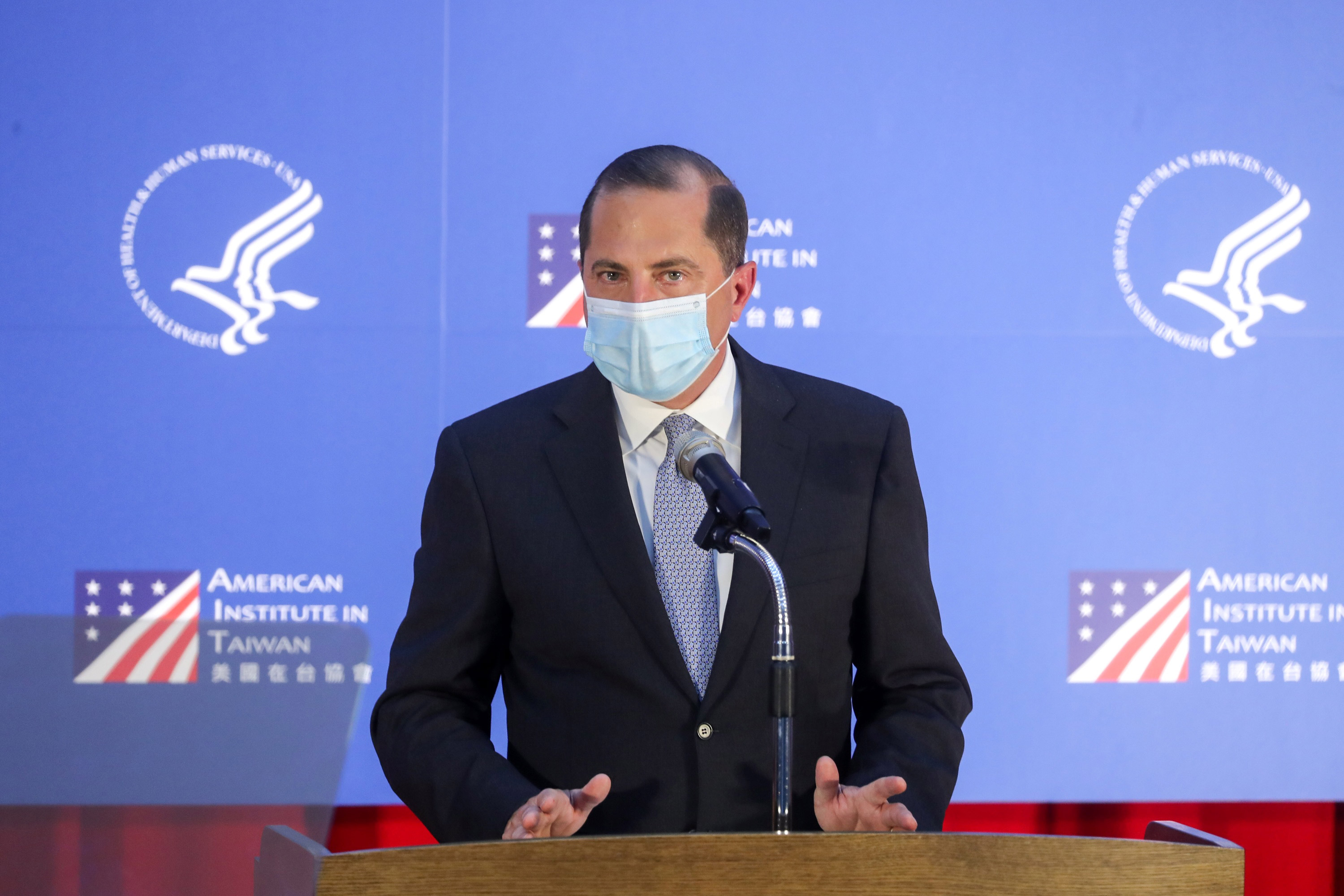 US Health and Human Services Secretary Alex Azar speaks at the public health college of the National Taiwan University in Taipei, Taiwan, on August 11. Pei Chen/Pool/AFP via Getty Images
US Health and Human Services Secretary Alex Azar speaks at the public health college of the National Taiwan University in Taipei, Taiwan, on August 11. Pei Chen/Pool/AFP via Getty ImagesUS Health and Human Services Secretary Alex Azar spoke about what Taiwan, the country he is currently visiting, has done in order to control the Covid-19 pandemic.
“Taiwan has taken very effective measures, but they’re very strong measures,” Azar said on ABC’s Good Morning America on Tuesday.
Every person who comes into Taiwan is subject to a mandatory quarantine period, where individual compliance is checked and inspected by the police, Azar said. Taiwan has also used social media and mandatory cell phone GPS tracking to identify contacts.
More than 200,000 individuals have been placed in mandatory police-enforced quarantine in Taiwan, Azar said.
“There obviously are contexts here that fit cultural, social and legal norms that may or may not be applicable in the United States,” he said, “but the important thing is that Taiwan has approached this in a transparent, open collaborative way in the international system.”
They should be highlighted for what they have done for global public health, Azar said, before comparing the country to China.
“Across the straits of Taiwan, China, the People’s Republic of China, has not been transparent, have not been collaborative, and have been at the center of creating this global Covid-19 crisis,” he said.
US health secretary: "The point is to have a vaccine that is safe," not be first
From CNN's Naomi Thomas
US Health and Human Services Secretary Alex Azar reacted to the announcement from Russia that it has approved a “world first” Covid-19 vaccine.
Azar said that transparent data is needed, and that this data has to be from phase three trials that shows that a vaccine is safe and effective.
“That’s what President Trump is leading with the historic Operation Warp Speed initiative, with six vaccines in development,” Azar said.
He said they believe they are on track to having tens of millions of doses of FDA gold-standard vaccine by December, and hundreds of millions of doses going into 2021.
When asked how he stands by the timeline of December, Azar said that two of the six vaccines are in phase three clinical trials to prove safety and efficacy, and it will depend on the speed at which the clinical trials enroll, people are vaccinated and then exposed to the virus.
“So, we believe, Dr. Fauci believes, that it is very credible that we will have – we have multiple that will be delivering results, and we could have FDA-authorized or approved vaccines by December,” Azar said.
Dr. Sanjay Gupta: "Of course I wouldn't take" Russian vaccine
From CNN's Adrienne Vogt
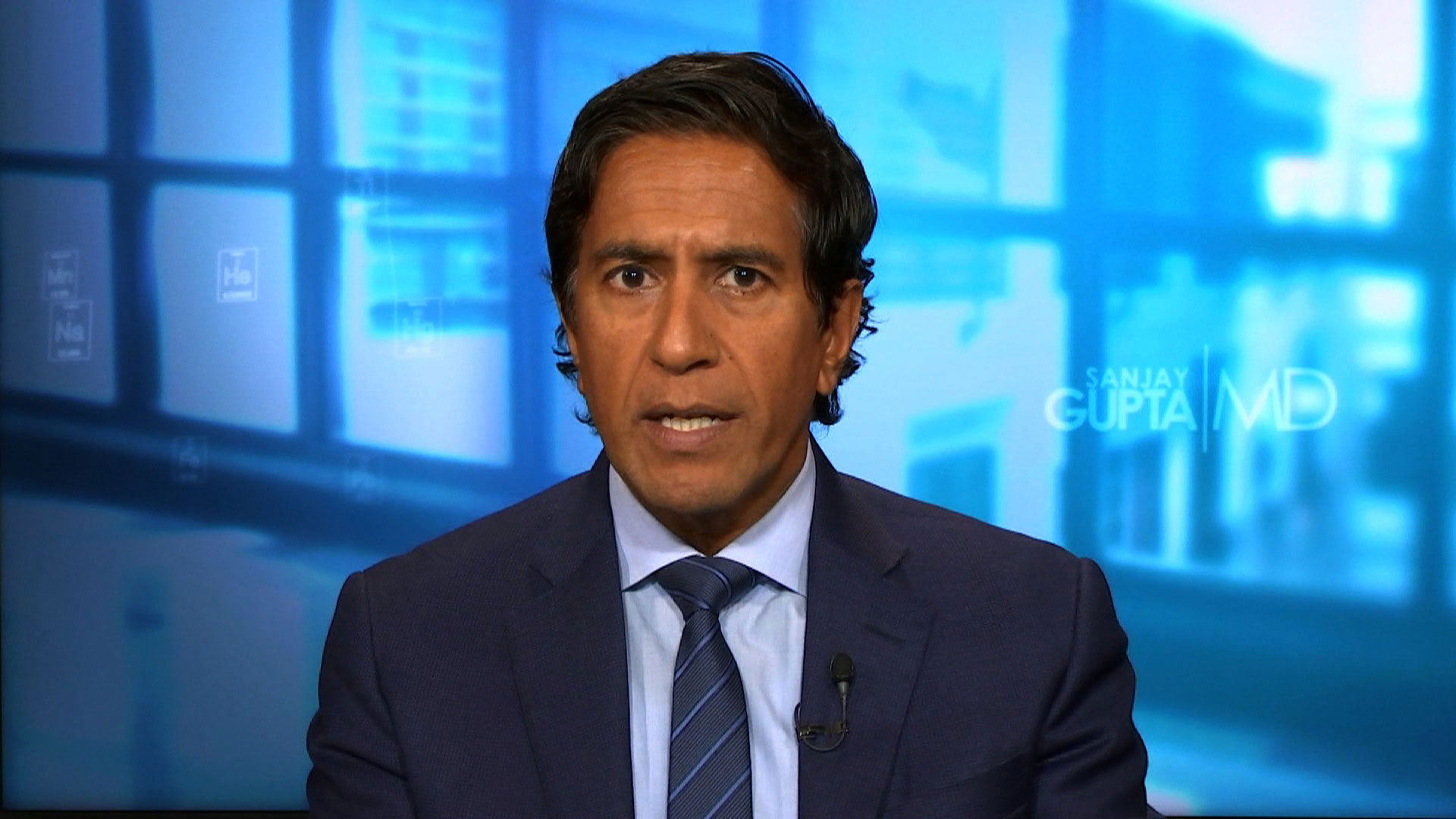 CNN’s Dr. Sanjay Gupta speaks on “New Day” on Tuesday, August 11. CNN
CNN’s Dr. Sanjay Gupta speaks on “New Day” on Tuesday, August 11. CNNRussian President Vladimir Putin says Russia has approved a “world-first” Covid-19 vaccine, but experts are skeptical about safety and effectiveness.
“We have no data on this,” CNN’s Dr. Sanjay Gupta said on “New Day.”
Gupta said he would not feel comfortable taking the vaccine, dubbed Sputnik-V, because of the lack of information about it.
Gupta said it reminds him of when Russia said it was developing an Ebola vaccine, yet he never saw any phase three data at that time.
“This is starting to sound very familiar to previous sort of vaccine campaigns out of Russia," he said. "… Of course I wouldn't take this. I know nothing about this vaccine.”
Watch Dr Gupta's full assessment:

 5 years ago
668
5 years ago
668 

